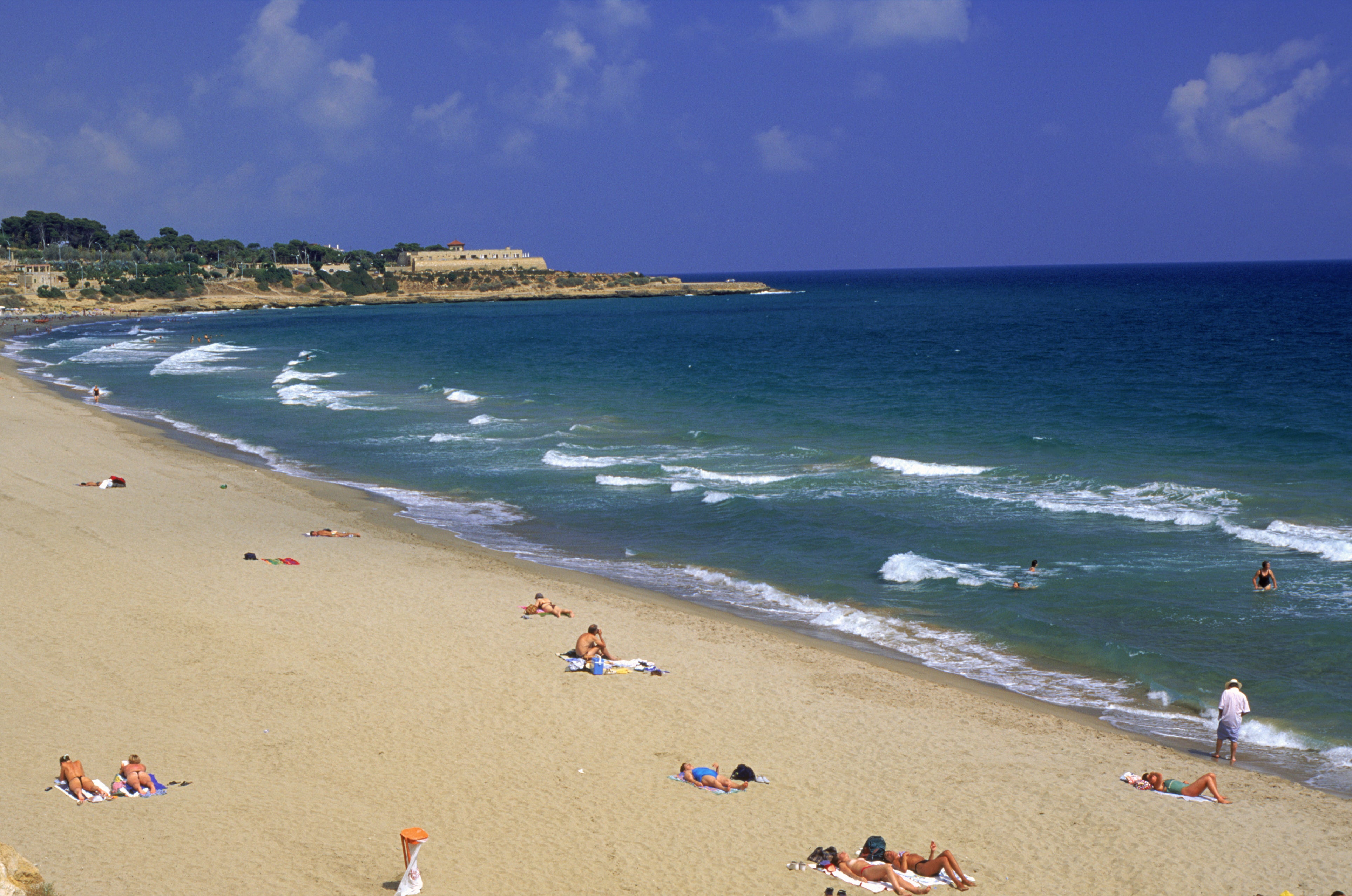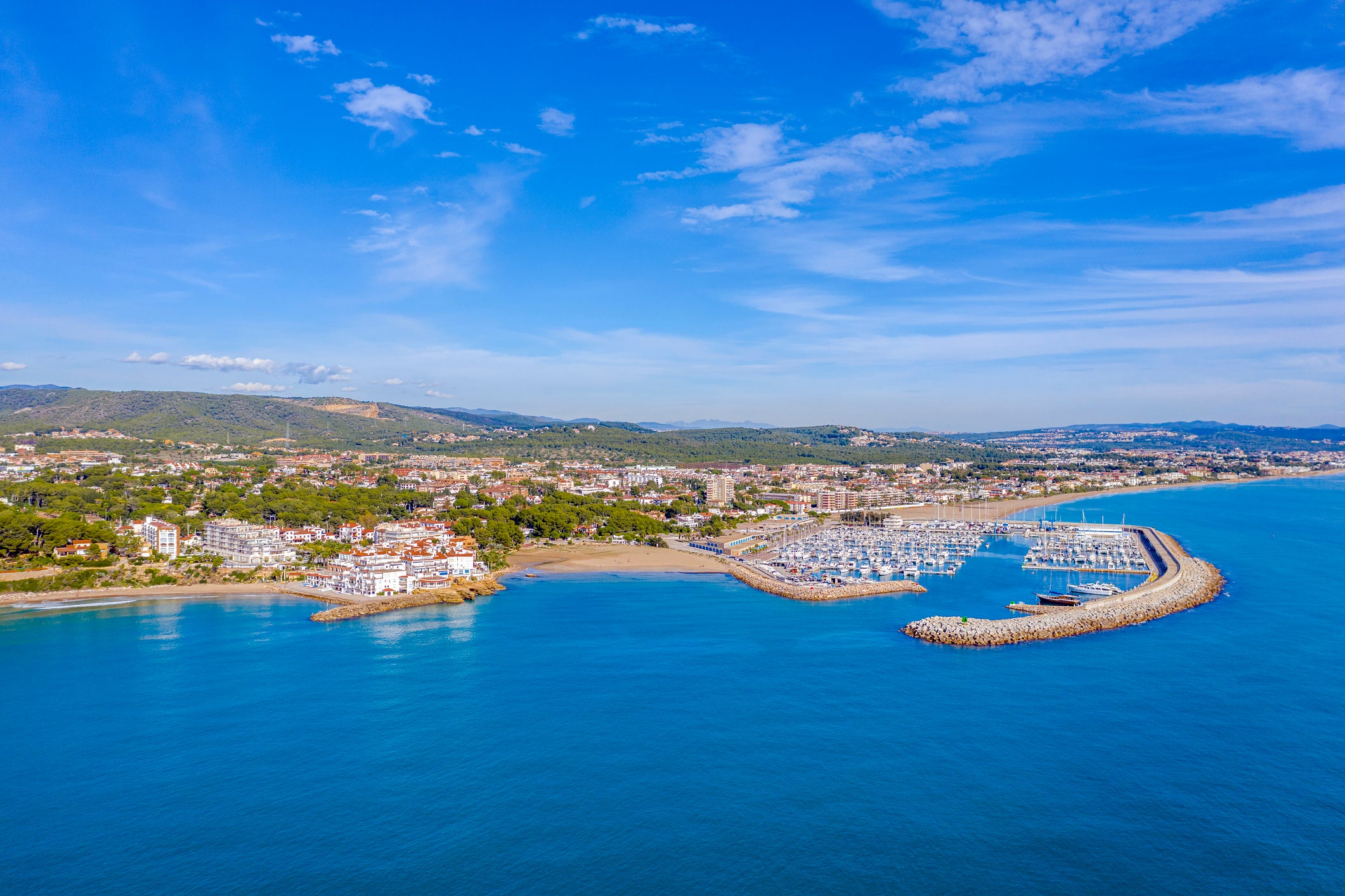A beach tragedy highlights the EU’s migration crisis – and how Spain’s election could make things worse
As Spain goes to the polls, potentially bringing a far-right party into the government, the discovery of the body of an eight-month-old baby whose family had sought a better life shows just how difficult it is for the continent to get on the same page about those who arrive by sea. Graham Keeley reports from Madrid.


Eight-month-old Lilia and her parents Samira and Kamel Laroussi had decided to leave their home in Algeria and risk everything in search of a new life in Europe.
Like hundreds of others, they never made it.
Last week, the remains of Lilia were found on a tourist beach in Tarragona, about 60 miles (95 kilometres) south of Barcelona.
Spain heads the six-month rotating presidency of the European Union and is attempting to spearhead attempts to broker a deal on the continent’s migration crisis.
“I hope that before the end of the semester we can definitely seal this pact on migration and asylum that is so important for the member states,” Spanish prime minister Pedro Sánchez said at a conference in Madrid.
But domestic politics in Spain will likely complicate matters, with voters taking to the ballot box on today for a general election.
Polls have shown the conservative People’s Party (PP) may win more votes than the ruling Socialists in Sunday’s general election but not enough to secure a majority so may depend on the help of the far-right Vox party.
Whereas the PP has said it backs an EU deal migration, Vox is diametrically opposed to illegal migration and in its election manifesto it advocates using a naval blockade to stop migrants arriving on Spanish beaches.
In March, Lilia and her parents joined 13 others in a flimsy boat with a single, 40-horsepower motor which set out from the beaches near the Algerian port of Cherchell, hoping to reach Spain.
Each person paid between €5,000 (£4,350) and €7,000 (£6,100) to smugglers, who promised they would reach the Spanish Balearic Islands, maybe even the white beaches of Ibiza. All drowned about 15 kilometres off the coast of Denia, a popular holiday resort near Alicante, further to the west in the Mediterranean.
Migrant and refugee aid groups believe the boat’s motor failed and the currents drove them westwards towards the Costa Blanca. Fishermen kept coming across bodies of those who had been in the boat.

The body of her mother, Samira Laroussi was discovered and identified through DNA. She never got to celebrate her 36th birthday but her body has been repatriated to Algeria for burial. The body of Lilia’s father Kamel, 28, has not been found.
Weeks later, council workers clearing up the Tarragona beach came across what they first thought was a doll but soon realised was a dead baby. Lilia’s identity was confirmed like that of her mother through DNA samples provided by worried relatives in Algeria.
The grim discovery highlights the risks thousands take every year.
In the first six months of this year, 951 people have died trying to reach Spain from Africa, according to the migrant aid group, Walking Borders.
Of these, 778 perished on the most treacherous route from West Africa to the Canary Islands, while 102 died on what Walking Borders calls the ‘Algerian route’ and the rest from north Africa to southern Spain.
At least 13 Senegalese migrants from the same town died when their boat sank off the coast of Morocco, authorities said on Thursday.
The tragic news came after heightened attention on the Atlantic migration route from West Africa to the Canary Islands after several boats have sunk or gone missing in recent weeks.
More than 30,000 people have died trying to cross the Mediterranean since 2014, according to the UN International Organization for Migration (IOM).
Helena Maleno, of Walking Borders, blamed the deaths at sea on the “lack of coordination between the countries who should control rescue services”.
“In the case of Spain and Morocco, this is not based on the right to life but on bilateral treaties on migration control,” Maleno told The Independent.

The relationship between two near neighbours came into sharp focus in June last year when at least 37 people died trying to cross the land border from Morocco to the Spanish north African enclave of Melilla. Some 77 people are still missing.
The human rights group, Amnesty International, has accused both authorities in both countries had made no attempt to repatriate victims’ remains and they had not provided a list of names and causes of death and CCTV to help an investigation.
Beatriz Sánchez, a prosecutor with the Spanish migration affairs department, declined to charge Spanish officers because she said they had been unaware of a fatal crush that caused the deaths. Spanish MPs rejected calls for a parliamentary inquiry. Morocco said its police did not do anything wrong.
In the first six months of this year, the number of migrants arriving by sea fell slightly compared with the previous year. In 2023, 12,192 turned up on Spanish beaches while during the same period in 2022, 12,723 made the journey, a decrease of close to 5 per cent, according to Spanish government figures.
Lidia Hernandez, the humanitarian coordinator for state-run Spanish Commission for Refugee Aid (CEAR), said there had been a general fall in the number of migrant arrivals last year compared with 2021. In 2022, 12,192 people arrived by sea, compared with 12,723 in 2021, another fall of around 5 per cent.
She said the only route in which there was a rise in numbers was from the Algeria route to the Balearic Islands or southern Spain. This year from January to June, 4,865 people made this journey, compared with 3,765 during the same period in 2022, a rise of nearly 30 per cent.
Hernandez said general arrivals by sea may have fallen because of greater cooperation between Spain and Morocco.
In 2022, Madrid changed its policy towards the disputed territory of Western Sahara and backed Rabat’s claim, altering a policy of neutrality it had held for five decades.
Spain cooperates with West African countries on immigration and Spanish police officers are permanently based in Mauritania to advise local officers on how to tackle smuggling gangs.
Hernandez believes the type of migrants in the western Mediterranean is different from those who reach Greece and I.
“Generally, people arriving in Spain are what some people call ‘economic migrants’ from Africa but in Greece, where I have worked, it is different, they are coming generally to claim asylum from countries like Syria, Iran and Asia," she told The Independent.
Ousman Umar, the son of a witch doctor in Ghana, spent five years trying to reach Europe and finally made it on a flimsy boat from West Africa to the Canary Islands.
Sixteen years later, he is a successful businessman in Barcelona with a master’s degree from one of the world’s top business schools.
He could be a poster boy for those dreaming of a life in Europe, but instead, he has made it his mission to persuade Africans to stay at home rather than follow in his footsteps.
Umar set up Nasco Feeding Minds, an NGO which provides opportunities for young people in Ghana which will keep them from risking their lives crossing the Mediterranean to Europe.
“Change always comes from the bottom up. I want people to be aware of this awful tragedy happening here now. We saw it with the death of this baby on the beach,” he told The Independent.
“People do not need charity but help to make them stay in their countries and make a future for themselves. A plate of rice will feed you for a day, education will feed you for life.”






Join our commenting forum
Join thought-provoking conversations, follow other Independent readers and see their replies
Comments